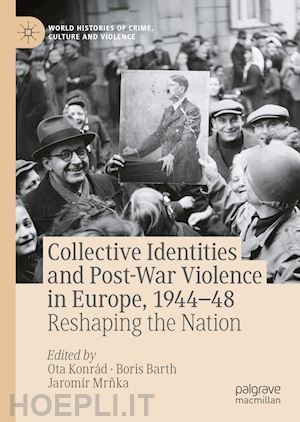
Questo prodotto usufruisce delle SPEDIZIONI GRATIS
selezionando l'opzione Corriere Veloce in fase di ordine.
Pagabile anche con Carta della cultura giovani e del merito, 18App Bonus Cultura e Carta del Docente
Ota Konrád is Associate Professor of Modern History at Charles University in Prague, Czech Republic. He has worked on topics dealing with the history of East-Central Europe in the twentieth century. Recently, he co-edited In the Shadow of the Great War: Physical Violence in East-Central Europe, 1917-1923 (2021).
Boris Barth is Professor of Modern and Contemporary History at Charles University in Prague, Czech Republic. His publications include Europa nach dem Großen Krieg. Die Krise der Demokratie in der Zwischenkriegszeit 1918-1938 (2016) and Civilizing Missions in the Twentieth Century (edited with Rolf Hobson, 2020).
Jaromír Mrnka is Researcher at the Institute for the Study of Totalitarian Regimes, and Junior Research Fellow at Charles University in Prague, Czech Republic. He has studied the social mechanisms of denunciation, collective violence, and conflict-related acts of sexual violence in the Czech Lands during the Second World War and its aftermath.










Il sito utilizza cookie ed altri strumenti di tracciamento che raccolgono informazioni dal dispositivo dell’utente. Oltre ai cookie tecnici ed analitici aggregati, strettamente necessari per il funzionamento di questo sito web, previo consenso dell’utente possono essere installati cookie di profilazione e marketing e cookie dei social media. Cliccando su “Accetto tutti i cookie” saranno attivate tutte le categorie di cookie. Per accettare solo deterninate categorie di cookie, cliccare invece su “Impostazioni cookie”. Chiudendo il banner o continuando a navigare saranno installati solo cookie tecnici. Per maggiori dettagli, consultare la Cookie Policy.